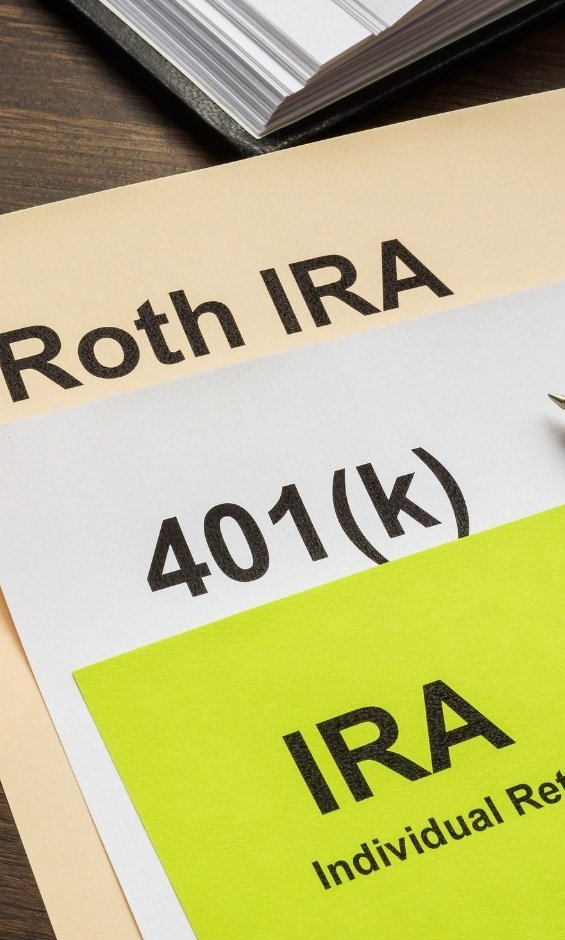Trust Deed Investing
Earn Passive Income Backed by Real Estate
Generate 10%+ annual returns with the security of real estate collateral. Our strategy for Trust Deed Investing focuses on nationwide commercial and residential properties, utilizing conservative loan-to-value ratios to mitigate risk while delivering monthly income.
NMIIC specializes in trust deed investing opportunities for accredited investors seeking passive income through real estate-backed investments. Trust deed investment involves funding loans secured by commercial and residential properties nationwide, providing portfolio diversification without the responsibilities of property ownership.
Our conservative underwriting process, first-position security, and experienced management team deliver annual returns of 10%+ with principal protection through asset-backed collateral and low loan-to-value ratios.
What Is Trust Deed Investing?
Trust deed investing is a form of private lending where investors fund real estate loans secured by property collateral through a deed of trust. As a trust deed investor, you become the lender by providing capital to borrowers for property acquisitions, refinancing, or development projects.
Key Components:
- Secured Investment – Loans protected by recorded deeds of trust on real property as collateral
- First Position Priority – Investors hold a first lien position with priority claim to property in default situations
- Fixed Returns – Predictable monthly income from borrower interest payments on loan principal
- Real Asset Backing – Investment secured by tangible commercial or residential real estate
- Private Lending – A Direct lending alternative to traditional investments like stocks and bonds
- Passive Income Stream – Monthly distributions without property management responsibilities
- Conservative LTV – Loan-to-value ratios typically 55-65% protecting investor principal
Trust deed investing offers real estate exposure and steady cash flow, eliminating the complexities of property ownership, tenant management, and maintenance obligations.

How Trust Deed Investing Works
NMIIC’s trust deed investing process connects accredited investors with vetted real estate loan opportunities secured by property collateral and conservative underwriting standards. Our trust deed investment company manages all aspects from origination through loan servicing.
- Investment Selection – Review available trust deed opportunities with detailed property information and loan terms
- Due Diligence – Evaluate property value, borrower qualifications, loan-to-value ratio, and market conditions
- Capital Commitment – Fund your trust deed investment through individual deeds or pooled fund participation
- Loan Origination – Deed of trust recorded on property securing your investment with a first lien position
- Monthly Distributions – Receive consistent monthly interest payments deposited directly to your account
- Loan Servicing – Professional loan administration handles payment collection and borrower communication
- Loan Maturity – Principal returned at loan payoff through refinancing, property sale, or balloon payment
- Reinvestment Options – Redeploy capital into new trust deed opportunities for continued passive income
- Promissory Note – Legal document outlining loan amount, interest rate, payment schedule, and terms
- Deed of Trust – Recorded security instrument granting lien rights on property as collateral
- Trustee – Independent third party holds deed until loan satisfaction or default resolution
- Beneficiary – Investor position receiving loan payments and holding a security interest in the property
- Non-Judicial Foreclosure – Streamlined foreclosure process in most trust deed states without court proceedings
- Property Recovery – Ability to take ownership and sell property to recover investment principal
- Conservative Leverage – Low LTV ratios provide an equity cushion protecting against market fluctuations
- First Position Security – Priority claim over subordinate liens and equity holders
Trust deed investing offers predictable returns through structured real estate lending, backed by asset security and professional management oversight.
Benefits of Trust Deed Investing
Trust deed investing offers accredited investors compelling advantages for portfolio diversification and passive income generation through real estate-backed investments.- High Fixed Returns – Target annual yields of 10%+ with predictable monthly income distributions
- Asset-Backed Security – Investments secured by real property collateral protecting principal investment
- First Position Priority – Priority lien rights provide the strongest claim to property in default scenarios
- Passive Income Stream – Monthly steady cash flow without property management, tenant issues, or maintenance costs
- Portfolio Diversification – Real estate exposure is uncorrelated to stock market volatility and economic cycles
- Conservative Leverage – Low loan-to-value ratios (55-65%) provide a substantial equity cushion
- Short-Term Investment Horizon – Typical loan terms of 6-36 months allow capital redeployment flexibility
- Principal Protection – Real property collateral recoverable through foreclosure if borrower defaults
- Tax-Advantaged Options – Invest through self-directed IRAs, 401(k)s, or retirement accounts for tax benefits
- No Property Management – Earn real estate returns without landlord responsibilities or operational burdens
- Predictable Cash Flow – Fixed interest rates and payment schedules simplify financial planning
- Professional Management – Experienced teams handle underwriting, servicing, and default resolution
Contact NMIIC today to explore trust deed investment opportunities and portfolio diversification strategies.

Types of Trust Deed Investments
NMIIC offers multiple trust deed investment structures, allowing investors to customize risk profiles, capital commitments, and portfolio diversification strategies.
First-position trust deeds provide investors with the strongest security and priority claim to property collateral in the event of borrower default.
- Priority Lien Status – First claim to property proceeds ahead of all subordinate liens and equity holders
- Maximum Security – Strongest legal position protecting investor principal and accumulated interest
- Lower Risk Profile – Conservative LTV ratios and priority status minimize investment loss potential
- Individual Investment Control – Direct participation in specific loan opportunities and property selection
- Higher Capital Requirements – Typically require funding the entire loan amount ranging $100,000 to $5,000,000+
- Property-Specific Returns – Interest rates and terms negotiated based on individual property and borrower
- Active Due Diligence – Investors review property appraisals, title reports, and borrower qualifications
- Non-Judicial Foreclosure Rights – Streamlined foreclosure process without lengthy court proceedings
Fractional trust deed investments enable multiple investors to participate in a single loan, thereby reducing capital requirements and facilitating greater portfolio diversification.
- Lower Investment Minimums – Participate with smaller capital commitments starting at $25,000-$100,000
- Shared Security Interest – Multiple investors hold proportional interests in a single trust deed
- Risk Distribution – Spread capital across multiple fractional positions rather than a single significant investment
- Broader Portfolio Access – Invest in larger commercial properties requiring substantial loan amounts
- Proportional Returns – Receive monthly distributions based on your ownership percentage
- Collaborative Investment – Multiple accredited investors fund a single real estate loan together
- Professional Coordination – Mortgage broker manages multiple investor relationships and documentation
- Equal Priority Standing – All fractional investors share equal first position lien rights
Trust deed funds pool investor capital across diversified portfolios of multiple loans, providing maximum diversification and passive management with experienced fund manager oversight.
- Maximum Diversification – Capital spread across 20-50+ individual trust deeds, reducing single-loan risk
- Lowest Investment Minimums – Entry points starting at $50,000-$100,000 for fund participation
- Professional Portfolio Management – Experienced fund manager handles all loan origination, underwriting, and servicing
- Completely Passive Investment – No individual loan decisions, property analysis, or default management required
- Geographic Diversification – Investments spread across multiple markets and property types nationwide
- Automatic Reinvestment – Loan payoffs automatically redeployed into new opportunities, maintaining capital deployment
- Monthly Income Distributions – Consistent monthly payments from the pooled loan portfolio performance
- Property Type Diversification – Exposure to commercial, multifamily, residential, and mixed-use properties
- Management Fees – Annual fees typically 1-2% of invested capital for professional oversight
- Simplified Reporting – Single monthly statement showing fund performance and distributions
- Reduced Individual Risk – Default impact minimized across large, diversified loan portfolio
Trust Deed Investment Returns and Performance
NMIIC’s trust deed investments deliver consistent returns through conservative underwriting and asset-backed security. Understanding return structures helps investors set realistic expectations and evaluate performance.
- Annual Interest Rates – 10-13% fixed returns based on loan type, property, and borrower profile
- Monthly Income Distributions – Consistent monthly payments providing predictable cash flow
- Return Factors – Property type, loan-to-value ratio, loan term, and market conditions influence rates
- First Position Trust Deeds – Individual loans typically yield 10-12% annual returns
- Fractional Investments – Similar returns to individual deeds with reduced capital requirements
- Trust Deed Funds – Blended portfolio returns of 10-11% after management fees
- Fixed-Rate Structure – Locked interest rates provide stability regardless of market fluctuations
- Principal Preservation Focus – Conservative LTV ratios protect initial investment capital
- Compounding Through Reinvestment – Redeploy distributions into new deeds for compound growth
- Short-Term Velocity – 6-36 month loan terms allow frequent capital redeployment
- Default Recovery Rates – Historical recovery of 95%+ of principal through foreclosure sales
- Market Cycle Resilience – Asset-backed security provides stability during economic volatility
Trust deed investments have historically outperformed traditional investments while providing real asset collateral protection, which is unavailable in stocks, bonds, or mutual funds.


Risk Mitigation Strategies
NMIIC employs comprehensive risk mitigation strategies protecting investor capital through conservative underwriting, diversification, and professional management oversight. Our thorough underwriting process evaluates all aspects before loan approval.
- Low Loan-to-Value Ratios – Maximum 55-65% LTV creates a substantial equity cushion protecting the investment
- Property Appraisals – Professional valuations ensure adequate collateral backing for loan amounts
- Borrower Vetting – Detailed credit analysis, income verification, and track record evaluation
- Exit Strategy Requirements – Documented plans for loan repayment through refinancing or sale
- Title Insurance – Clear title verification protecting lien position and investor rights
- Property Insurance – Required hazard insurance protecting collateral value throughout the loan term
- Multiple Property Types – Spread investments across residential, commercial, multifamily, and industrial income properties
- Geographic Distribution – Invest in different markets, reducing regional economic concentration risk
- Loan Size Variety – Mix of small, medium, and large loan,s preventing over-concentration
- Borrower Diversification – Multiple borrowers eliminate dependence on a single relationship
- Loan Term Staggering – Varying maturity dates provide liquidity and reinvestment flexibility
- Fund Investment – Trust deed funds automatically diversify across 20-50+ individual loans
- Early Warning Systems – Proactive monitoring of payment performance and borrower communication
- Professional Loan Servicing – Experienced teams manage collections and borrower relationships
- Swift Action Procedures – Immediate response to missed payments, preventing debt accumulation
- Non-Judicial Foreclosure – Streamlined foreclosure process recovers principal quickly without court delays
- Property Liquidation Expertise – Efficient asset disposition maximizes recovery amounts
- Legal Resources – Experienced attorneys handle foreclosure proceedings and investor protection
- Conservative Property Valuations – Underwrite to current market values with downside protection
- Short-Term Loan Horizons – 6-36 month terms reduce exposure to long-term market cycles
- Property Condition Requirements – Finance income-producing or marketable properties only
- Market Analysis – Continuous monitoring of local real estate conditions and trends
Invest with confidence through NMIIC’s proven risk mitigation strategies and conservative lending standards.
Trust Deed Investment Returns & Performance
NMIIC’s trust deed investments deliver consistent returns through conservative underwriting and asset-backed security. Understanding return structures helps investors set realistic expectations and evaluate performance.
- Capital Requirement: $50,000-$100,000 minimum for funds, higher for individual deeds
- Management: Completely passive with professional loan servicing
- Income: Fixed monthly distributions from interest payments
- Liquidity: Limited liquidity until loan maturity (6-36 months)
- Returns: 10-13% annual fixed yields
- Risk Profile: Conservative with asset-backed collateral and first position security
- Capital Requirement: 20-30% down payment plus closing costs and reserves
- Management: Active landlord duties or property manager fees
- Income: Variable monthly rent minus expenses and vacancies
- Liquidity: Months to sell property with transaction costs
- Returns: 6-10% net cash flow plus potential appreciation
- Risk Profile: Property damage, tenant issues, market fluctuations
- Capital Requirement: Low minimums, publicly traded accessibility
- Management: Completely passive, stock market investment
- Income: Quarterly dividends subject to REIT performance
- Liquidity: Immediate sale on public exchanges
- Returns: 4-8% dividend yields plus stock price volatility
- Risk Profile: Market correlation, no direct collateral control
- Capital Requirement: $25,000-$100,000 typical minimums
- Management: Passive limited partner role
- Income: Quarterly or annual distributions after property stabilization
- Liquidity: Locked for 3-7 years with limited transfer options
- Returns: 7-12% projected returns, including appreciation
- Risk Profile: Sponsor dependency, property-specific performance
- Capital Requirement: Full property acquisition and renovation capital
- Management: Highly active project management required
- Income: Lump sum profit at sale completion
- Liquidity: 6-12 months until property sale
- Returns: 15-30% potential profits with higher risk
- Risk Profile: Construction delays, budget overruns, market timing

Trust deed investing provides consistent fixed returns with asset-backed security, minimal management requirements, and shorter investment horizons compared to direct property ownership or syndications.

Who Should Invest in Trust Deeds?
Trust deed investing serves accredited investors seeking passive real estate income with conservative risk profiles and portfolio diversification objectives.
- Accredited Investors – Meet SEC income ($200,000+ individual, $300,000+ joint) or net worth ($1,000,000+ excluding primary residence) requirements
- Passive Income Seekers – Investors prioritizing consistent monthly cash flow over property appreciation
- Portfolio Diversifiers – Those seeking real estate exposure without stock market correlation
- Retirement Account Holders – Self-directed IRA, 401(k), or pension fund owners pursuing tax-advantaged returns
- Conservative Investors – Risk-averse individuals valuing asset-backed security and principal protection
- Real Estate Professionals – Industry veterans understanding property valuation and market dynamics
- Business Owners – Entrepreneurs seeking passive investments requiring minimal time commitment
- High-Net-Worth Individuals – Sophisticated investors building diversified alternative investment portfolios
- Income-Focused Retirees – Individuals requiring predictable monthly distributions for living expenses
- Former Property Owners – Previous landlords seeking real estate returns without management responsibilities
- Estate Planners – Investors building legacy wealth through stable income-producing assets
- Fixed Income Generation – Predictable monthly payments supporting cash flow needs
- Capital Preservation – Conservative leverage protecting principal investment through real asset collateral
- Real Estate Exposure – Market participation without property ownership complexities
- Portfolio Stability – Non-correlated returns reduce overall investment portfolio volatility
- Tax Optimization – Retirement account investments deferring or eliminating income taxes
- Passive Investment Strategy – No active management, tenant relations, or property maintenance required
- Retirement Portfolio Diversification – Alternative asset allocation strengthens retirement portfolio performance through non-correlated real estate returns
Property Types and Markets We Finance
NMIIC funds trust deed investments across diverse property types and markets nationwide. Unlike traditional hard money loan providers that focus on distressed properties, our trust deed investment company offers institutional-quality financing across a range of income-producing assets.
- Commercial Office Buildings – Professional office spaces, medical buildings, and corporate complexes
- Multifamily Properties – Apartment buildings, residential complexes, and income-producing rental properties
- Retail Properties – Shopping centers, strip malls, standalone retail buildings, and restaurant spaces
- Industrial Properties – Warehouses, distribution centers, manufacturing facilities, and flex spaces
- Mixed-Use Developments – Properties combining residential, retail, and commercial components
- Self-Storage Facilities – Storage unit complexes and mini-warehouse properties
- Hospitality Properties – Hotels, motels, and short-term rental investment properties
- Single-Family Rentals – Investment homes and residential rental properties
- Special Purpose Properties – Medical facilities, daycare centers, and unique commercial real estate
NMIIC provides trust deed investment opportunities across the United States, excluding Florida, due to state-specific lending regulations.
Primary Markets:
- Western States – California, Arizona, Nevada, Oregon, Washington, Utah, Idaho, Montana
Southwestern Markets – Texas, New Mexico, Colorado
Midwestern States – Illinois, Ohio, Michigan, Minnesota, Wisconsin
Southeastern Markets – Georgia, North Carolina, South Carolina, Tennessee (excluding Florida)
Northeastern States – New York, Pennsylvania, New Jersey, Massachusetts
Mountain States – Wyoming, Montana, Idaho
- Strong local real estate fundamentals and property value stability
- Active real estate markets with established buyer demand
- Favorable foreclosure laws supporting non-judicial foreclosure procedures
- Experienced local professionals, including appraisers, title companies, and attorneys
- Diverse economic bases reduce concentration risk

Geographic diversification across multiple markets protects investor portfolios from regional economic downturns and localized real estate corrections.

Trust Deed Investment Requirements
NMIIC’s trust deed investments require accredited investor status and specific capital commitments, which vary based on the investment structure and participation level.
- Income Threshold – $200,000+ annual income individually or $300,000+ jointly for past two years
- Net Worth Threshold – $1,000,000+ net worth excluding primary residence value
- Professional Certifications – Certain financial licenses qualify regardless of income or net worth
- Entity Qualifications – Trusts, LLCs, corporations, or partnerships meeting asset requirements
- Trust Deed Funds – $50,000-$100,000 minimum initial investment
- Fractional Trust Deeds – $50,000-$100,000 per individual loan participation
- Individual First Position Deeds – $100,000-$5,000,000+, depending on loan size
- Accredited Investor Verification – Tax returns, W-2s, bank statements, or CPA letter confirming status
- Government-Issued ID – Driver's license or passport for identity verification
- Entity Documents – LLC operating agreements, trust documents, or corporate resolutions if applicable
- Subscription Agreement – Legal investment documents outlining terms and investor acknowledgments
- IRA Documentation – Self-directed IRA custodian paperwork if investing through retirement accounts
- Liquidity Constraints – Capital committed for loan term duration (typically 6-36 months)
- Reinvestment Planning – Strategy for redeploying capital at loan maturity
- Risk Tolerance – Understanding of real estate lending risks and potential default scenarios
- Time Horizon – Short to medium-term investment objectives aligning with loan terms
- Portfolio Allocation – Trust deeds typically represent 10-30% of diversified investment portfolios
- Investor financial qualifications and accredited status verification
- Investment objectives and risk tolerance alignment
- Capital availability and funding timeline
- Experience level with alternative investments and real estate
- Long-term relationship potential for ongoing investment opportunities
Get started with NMIIC trust deed investments—contact us today for accredited investor qualification and available opportunities.
Tax Advantages of Trust Deed Investing
Trust deed investing offers significant tax benefits when structured through qualified retirement accounts, allowing investors to defer or eliminate income taxes on investment returns. Tax Treatment of Trust Deed Income:- Ordinary Income Classification – Interest income from trust deeds is taxed as ordinary income at individual rates
- Monthly Distribution Taxation – Regular income payments are subject to annual income tax reporting
- Capital Gains Treatment – Not applicable as trust deeds generate interest income, not capital appreciation
- 1099-INT Reporting – Annual tax forms issued for interest income received during the calendar year
Retirement Account Tax Benefits:
Investing through qualified retirement accounts transforms ordinary income taxation into tax-deferred or tax-free growth opportunities.Self-Directed IRA Investments
Self-directed IRAs allow trust deed investments within tax-advantaged retirement accounts, providing substantial long-term wealth-building benefits.- Tax-Deferred Growth – Traditional IRA trust deed income grows tax-deferred until retirement distributions
- Tax-Free Growth – Roth IRA trust deed investments generate completely tax-free income and growth
- No Annual Income Taxes – Monthly distributions accumulate within the IRA without current tax obligations
- Compound Growth Acceleration – Reinvest full pre-tax returns into new trust deeds for exponential growth
- Required Minimum Distributions – Traditional IRA withdrawals required after age 73 per IRS regulations
- Contribution Limits – Annual IRA contribution limits apply ($7,000 for 2024, $8,000 if age 50+)
- Custodian Requirements – Self-directed IRA custodian manages trust deed investments and compliance
- Prohibited Transaction Rules – Cannot invest in deeds involving disqualified persons (family, self-benefit)
- UBIT Considerations – Unrelated Business Income Tax may apply if using IRA leverage
- Open a self-directed IRA account with a qualified custodian
- Fund account through contributions, transfers, or rollovers from existing retirement accounts
- Direct custodian to invest IRA funds into NMIIC trust deed opportunities
- Monthly trust deed payments are deposited directly into the self-directed IRA account
- Reinvest distributions or accumulate cash for future investments


401(k) and Retirement Account Options
Additional qualified retirement accounts provide tax-advantaged trust deed investment opportunities for eligible investors.
- Solo 401(k) Plans – Self-employed individuals can invest retirement funds in trust deeds with higher contribution limits
- SEP IRA – Simplified Employee Pension plans allow trust deed investments with flexible contribution amounts
- Simple IRA – Small business retirement plans are eligible for trust deed investment allocations
- Defined Benefit Plans – Pension plans can allocate portions to trust deed investments within plan guidelines
- Roth 401(k) – After-tax contributions generate tax-free trust deed income and distributions
- 403(b) Plans – Certain non-profit employee plans may allow self-directed trust deed options
- HSA Accounts – Health Savings Accounts, in some case,s permit alternative investments, including trust deeds
- Solo 401(k) contributions up to $69,000 annually (2024) or $76,500 if age 50+
- SEP IRA contributions up to 25% of compensation or $69,000 maximum
- Higher contribution limits accelerate retirement account growth through trust deed returns
- Employer contributions (if applicable) increase investable capital in qualified accounts
- Designated beneficiaries inherit retirement accounts with trust deed investments
- Roth IRA beneficiaries receive tax-free inherited trust deed income
- Trust deed investments within IRAs avoid probate proceedings
- Retirement accounts with consistent income support legacy wealth transfer strategies
Consult qualified tax professionals and financial advisors to optimize trust deed investments within retirement account structures.
Why Choose NMIIC for Trust Deed Investing
NMIIC brings specialized trust deed expertise, conservative underwriting standards, and investor-focused service to every investment opportunity nationwide.
- Average 55% LTV – Low loan-to-value ratios protect investor principal with substantial equity cushions
- Maximum 65% LTV – Conservative leverage ensures sustainable risk profiles across the portfolio
- First Position Priority – Exclusive first lien positions providing the strongest security and foreclosure rights
- Asset-Backed Security – All investments secured by commercial and residential real estate collateral
- Short-Term Focus – Loan terms typically under 3 years aligned with investor liquidity preferences
- Monthly Distributions – Predictable payment schedules delivering consistent cash flow
- Decades of Expertise – Founded by mortgage professionals with extensive real estate lending experience
- Proven Track Record – Successful performance history in performing and non-performing loan portfolios
- Professional Underwriting – Rigorous property evaluation, borrower vetting, and risk assessment protocols
- Market Knowledge – Deep understanding of nationwide real estate markets and regional dynamics
- Transparent Communication – Clear reporting on investment performance, property status, and distribution schedules
- Direct Relationships – Personal access to decision-makers without layers of bureaucracy
- Detailed Documentation – Comprehensive property information, appraisals, and loan terms provided upfront
- No Hidden Fees – Transparent fee structure with clear disclosure of all costs and expenses
- Flexible Investment Options – Individual deeds, fractional positions, or diversified fund participation
- Payment Collection – Efficient monthly payment processing and investor distribution management
- Borrower Communication – Professional relationship management throughout the loan term
- Default Management – Swift action protocols protecting investor interests in delinquency situations
- Foreclosure Expertise – Experienced teams handle non-judicial foreclosure proceedings and property recovery
- Asset Disposition – Proven property liquidation strategies maximizing recovery values
- Extensive market coverage across the United States (excluding Florida)
- Established relationships with local appraisers, title companies, and attorneys
- Regional market expertise, ensuring proper property valuations and risk assessment
- Diverse property type experience across commercial, residential, and mixed-use assets

Partner with NMIIC for trust deed investments backed by conservative underwriting, experienced management, and investor-first principles.

How to Get Started
Begin earning passive income through NMIIC trust deed investments with a straightforward process designed for accredited investor participation.
Contact NMIIC today to start your trust deed investment journey and begin earning a passive income of 10% or more, backed by real estate.
Frequently Asked Questions
Start Earning Passive Income with Trust Deed Investments
Seeking consistent 10%+ returns backed by real estate without property management responsibilities? NMIIC’s trust deed investment opportunities offer accredited investors monthly income distributions, conservative loan-to-value ratios, and first-position security across a diversified portfolio of nationwide properties.
Contact NMIIC today to explore trust deed investment opportunities and begin building passive income through asset-backed real estate lending.
Office address:
Suite 215B, Boca Raton, FL 33487


